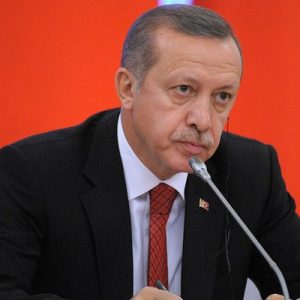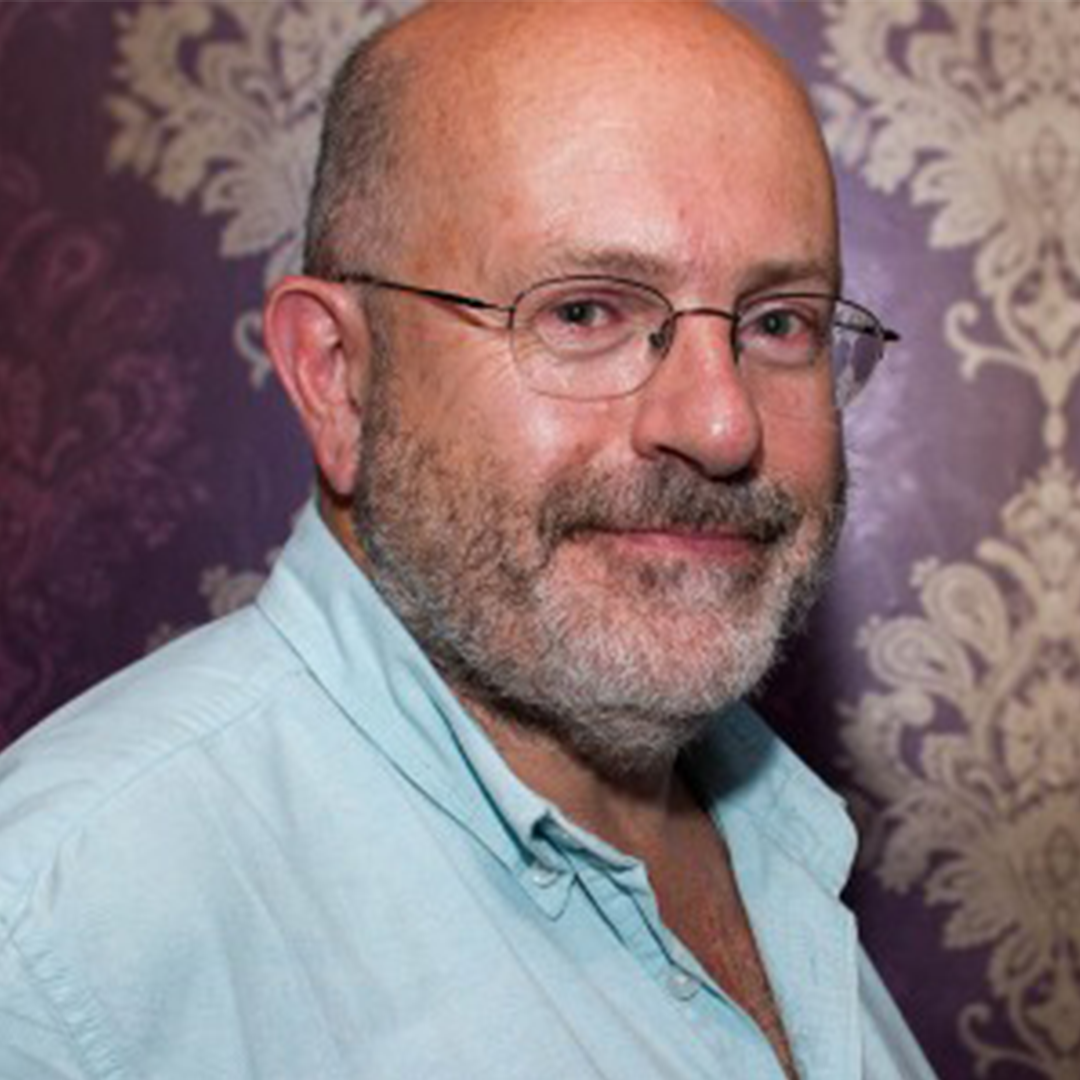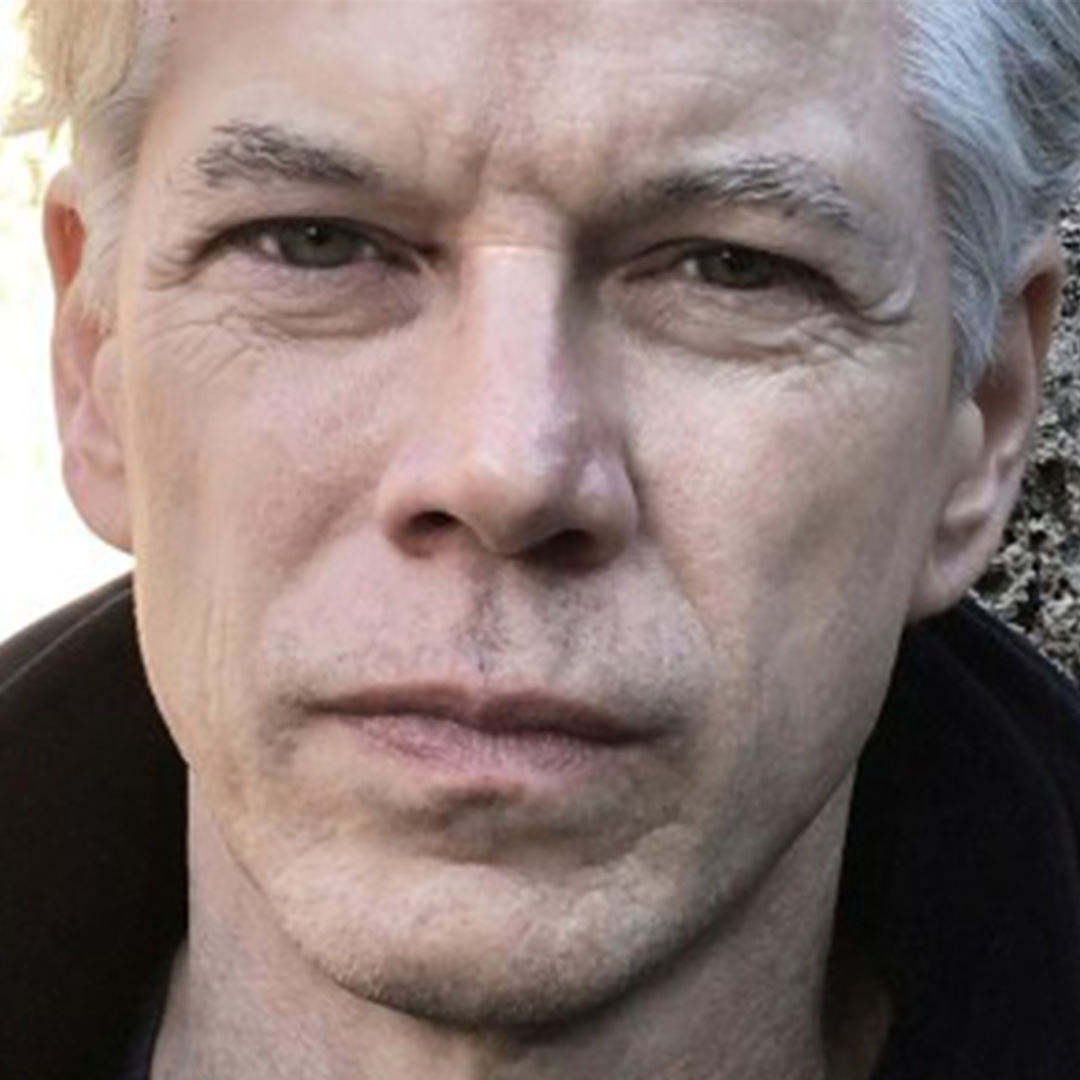3 Dec 2021 | Greece, News, Turkey
Ingeborg Beugel had been living and working in Greece on and off for years when, last month, a stone thrown at her head and a wave of online bullying and threats against her life forced her to return to the Netherlands. The attacks happened after she asked Greek prime minister Kyriakos Mitsotakis why he “keeps lying about pushing back refugees” from Greek to Turkish waters. Her case adds to a growing list of violations against media freedoms in Greece, a worrying sign that all is not well in the European country.
“I hadn’t expected a digital witch hunt”, Beugel told Index on Censorship after she had returned to the Netherlands. Beugel is known in the Netherlands for her many reports from the Greek islands, where refugees are held in camps in dire conditions and where she tracks refugees personally, collecting first-hand evidence of those who are sent back to Turkey. Press conferences with authorities are not her cup of tea, but this time was different, she said:
“This was my chance to let two prime ministers, Mitsotakis of Greece and Rutte from the Netherlands, not get away with denial of push-backs anymore. Until the last minute I wasn’t sure how to phrase my question, but I knew I had to be sharp.”
What she came up with was: “When at last will you stop lying about the push-backs? Please don’t insult either mine or the intelligence of all the journalists in the world. There has been overwhelming evidence and you keep denying and lying. Why are you not honest?”
Mitsotakis reacted furiously, taking it as an insult to both himself and the Greek people. Asked if she had been impolite, Beugel answered: “You know what’s impolite? Pushing refugees back, which is against international law, and lying about it.”
In the evening following the press conference, a rock was thrown at her as she left a grocery shop, grazing her forehead. She ran home and only then discovered the digital witch hunt. [Some of those online were criticising Beugel for helping an asylum seeker, for which she was briefly arrested over the summer. – Editor]
A couple of days later, she was on a plane back to the Netherlands. The Dutch embassy in Athens, the Dutch Foreign Affairs Ministry and the Dutch Journalists Union NVJ strongly advised her to leave because her safety couldn’t be guaranteed anymore.
“’Let it blow over’, they said. So I’m waiting for it to blow over,” Beugel said.
Yannis Kotsifos, director of the Journalists’ Union of Macedonia and Thrace in Greece and chairperson at the European Center for Press and Media Freedom (ECPMF) in Germany, told Index: “Mitsotakis didn’t react in the right way to Beugel’s question and even though I didn’t like her style, I understand why she did it this way. But we need to be careful not to make the debate about press freedom political. Greece’s position on the press freedom list is in decline but it’s not just about this government. The problems are deeper rooted.”
Beugel agreed, and indeed placed the way she phrased her question in a wider context of the Greek media landscape, in which media don’t dedicate a lot of space to the illegal turning away of refugees to Turkey. “Mitsotakis’ denial keeps defining the journalistic narrative and I wanted to break that,” Beugel said. “I knew I would have a big audience at this press conference and that Greek pro-government media couldn’t ignore what I said and what then happened.”
Beugel recalls when she first started as an aspiring journalist in Greece 40 years ago. There was a lot of hope for the future, following the end of the Greek junta, a military dictatorship that lasted from 1967 to 1974.
“But now, the press is mostly in the hands of tycoons who are not in media for the sake of good journalism. Public TV works for the government in power, and has been underfunded,” she said.
Ownership is a problem, but ECPMF’s Kotsifos also highlighted a lack of self-regulation in the press, a lack of finances for independent journalism and for proper working conditions, and a growing distrust in the media because of rising polarisation.
“This leads to hate rhetoric against journalists and sometimes to physical violence,” said Kotsifos.
To break this cycle and encourage a freer press, the Media Freedom Rapid Response, a project that has monitored violations of media freedom across the EU since March 2020, and the ECPMF are conducting a fact finding mission in Greece this month.
The mission was considered necessary because of several worrying “signals”, the worst being earlier this year when crime reporter Giorgos Karaivaz was fatally shot outside his house in Athens. Other incidents include surveillance by the Intelligence Service of Stavros Malichoudis, who reports about migration and refugees.
New legislation is of concern too, most notably the proposed introduction of fines and jail sentences for journalists found guilty of publishing “fake news”, which would, MFRR said,”undermine the freedom of the press and have a chilling effect at a time when independent journalism is already under pressure in Greece”. SLAPP lawsuits, in which journalists are bombarded with legal cases to drain them financially and stifle their work, are also a huge point of concern (as reported here by Index).
Today Beugel is in Amsterdam waiting until the commotion “blows over”. She said: “I want to return as soon as possible. I miss my dogs, who are luckily taken care of by a friend. I miss my friends, my house, my work. This situation is hard, but I know there is not only rejection, but support for my work in Greece as well.”
3 Dec 2021 | 2021 year end campaign, Campaigns, China, News, Syria, Turkey
At the end of every year, Index on Censorship launches a campaign to focus attention on human rights defenders, artists and journalists who have been in the news headlines during the past twelve months and their oppressors.
This year, we asked for your help in identifying the Tyrant of the Year. There was fierce competition, with many rulers choosing to use the cover of Covid lockdowns to crack down on their opponents.
Heartbreakingly there was fierce competition – with too many repressive regimes in the running. However, your views were clear.
 The crown for the most oppressive Tyrant of 2021 goes to Turkish President Recep Tayyip Erdoğan.
The crown for the most oppressive Tyrant of 2021 goes to Turkish President Recep Tayyip Erdoğan.
We can think of a few reasons why Erdoğan claimed the top spot. He refuses to release civil society leader Osman Kavala, imprisoned since 2017 despite being acquitted twice. Student LGBTQ+ artwork and campaigning on International Women’s Day has also led to arrests in the country.
He has also, perhaps ironically, become the first European leader to withdraw from the Istanbul Convention on violence against women. Kurds have also continuously seen their rights to freedom of expression curtailed while opposition politicians such as the Democracy and Progress Party’s Metin Gurcan have also been jailed for criticising the president.
While Erdoğan topped this year’s poll, two other names pulled in plenty of votes: China’s Xi Jinping came in second with Syria’s Bashar al-Assad following closely in third.
The December poll saw huge amounts of traffic on our website with thousands of votes cast. We also saw the number of cyber attacks on our site double during the period, suggesting that it had annoyed some of those in the poll or their supporters.
We give thanks to all those who voted, to those continuing to loudly criticise tyrants globally, and remind everyone to stay vigilant to those seeking to silence them and us all.
27 Oct 2021 | News, The climate crisis, Turkey, Volume 50.03 Autumn 2021, Volume 50.03 Autumn 2021 Extras
“Funded by George Soros and the Rockefeller family, Greenpeace organises chaotic events around the world, spearheading protest movements against the construction of the Istanbul Canal,” Yeni Akit, the Turkish government’s favourite far-right newspaper, reported recently.
The artificial sea-level waterway, if it gets built, will connect Marmara with the Black Sea, with an outcome most experts agree will be catastrophic for Istanbul and the Marmara Sea. But Turkey’s Islamist government brands anyone opposing its ecocidal project as traitors and foreign agents.
“Greenpeace issued a statement, ‘No to the Istanbul Canal’, on its website, insistently disseminating the lie that this project will harm the environment,” the pro-government daily warned, calling the canal “the project of the century” and describing criticisms and warnings from activists, experts and scientists as “mere propaganda”.
Attacks on environmental activists have never been greater in Turkey, where laws passed under the state of emergency in 2016 continue to allow Islamists to detain dissidents and NGO workers as “terrorist sympathisers”.
For Özgür Gürbüz, one of Turkey’s most seasoned environmental activists, the atmosphere of 2021 is reminiscent of the early 2000s.
Since the 1990s, Gürbüz has organised petitions against the construction of nuclear plants in Turkey; marched outside embassies to protest against nuclear projects by Chinese, French, Japanese and Russian companies; and once walked, backwards, from Mersin to Akkuyu – a 170km journey – to make his voice heard.
One of Turkey’s first environmental reporters, Gürbüz worked for the liberal Yeni Yüzyıl newspaper in 1996 when he began covering protests against Turkey’s first gold mine in the Anatolian town of Bergama. The Canadian company that operated the mine used cyanide in the extraction process. Villagers who opposed the technique placed ballot boxes in Bergama’s town square and held a vote, using direct democracy to settle the issue. They also travelled to Istanbul and, wearing Asterix and Obelix costumes, walked on the city’s Bosphorus Bridge carrying banners that read: “Hey police, first listen to what we have to say, then you can beat us!”
Gürbüz frequently travelled from Istanbul to Bergama to cover the protests. “Then one day,” he recalled, “a massive conspiracy theory, designed to demonise Bergama’s villagers, emerged.”
A German plot
According to the ultra-nationalist press, tales about cyanide were but a plot devised by a network of German NGOs, spearheaded by the Heinrich Böll Foundation, to bring Turkey to its knees. Ankara’s State Security Court opened a case in 2002, where 15 NGO workers faced spying charges which carried prison sentences of up to 15 years.
Meanwhile, a Turkish mining company called Koza had taken control of Bergama’s mine. Gürbüz smelt a rat. Whenever he called Koza, the company’s press officer asked him: “Do you know what German NGOs had been doing here? Let me send you a cache of information!” But a brief glimpse at the documents showed they contained nothing “but unfounded claims”.
Gürbüz believes Koza had disseminated disinformation to dissuade patriotic Turks who supported the uprising from opposing their takeover. It later transpired that Koza was one of the companies operated by the movement of Fetullah Gülen, the Islamist preacher who allied with president Recep Tayyip Erdoğan in the 2000s to purge secularists from Turkey’s public sector.
This tactic of criminalising civil society cast a long shadow that continues to this day.
“Sometimes they accuse us of being German spies; other times we’re British collaborators. Countries change; the accusation of being in the pay of foreign powers does not,” Gürbüz said. “But their accusations devastated Bergama villagers. I know them. They love their soil, and all they wanted was to practice agriculture.
“They are patriots, typical Anatolian people who suddenly found themselves on the telly, portrayed as German and British agents. It was impossible for them not to panic.”
For scholars and experts who worked for environmental causes, the prospect of a knock on the door from the security services became a real possibility. “The public broadcaster TRT gave airtime to the disinformation campaign featuring German NGOs. Such speculation exhausted and harmed Turkey’s burgeoning environmental movement,” said Gürbüz.
The spying case that began in 2002 came to nothing. Still, its mentality set the tone for the oppression of green activists over the next two decades, casting doubts on international NGOs just as the climate crisis worsened.
“Those who environmentalists rattle use whatever tool that comes in handy for them,” Gürbüz said, pointing to Aysin and Ali Ulvi Büyüknohutçu, a couple in their 60s known for their environmental activism in south-west Turkey, who were murdered in 2017. Gürbüz said: “They were trying to defend their environment. They received no funding, and yet the forces opposed to their struggle hired a young man to shoot them with a hunting rifle.”
Gürbüz sees a pattern in these cases where polluters use Turkey’s xenophobic climate to blame NGOs that oppose their ecocidal projects.
“Other tactics include tax controls, sending inspectors to NGOs to intimidate their workers,” he said.
To counter such manoeuvres, Gürbüz believes, journalists must act boldly. “In the past, we used to deal directly with the government because most polluters were public bodies. With the new autocratic regime, things are different. Private company CEOs are friends of newspaper tycoons who have ties to the government. Thanks to these intricate ties, the field for environmental journalism has shrunk.”
Tuna censorship
Gürbüz has suffered numerous instances of censorship. After identifying heavy metals in fish samples from the Marmara Sea, his newspaper refused to print the word “tuna” to avoid angering advertisers. (He published the uncensored version on his blog.) When he travelled to Yatağan to report on the public health implications of a thermic plant, his editor refused to publish the report, fearing that the company behind the project might become the newspaper’s new owner.
“This is why independent media is so crucial for the environmental struggle,” Gürbüz said.
After his reporting career came to an end, he spent a year in China before, on returning to Turkey, entering the NGO world, working for Greenpeace Mediterranean’s energy campaign and moving to the Heinrich Böll Foundation to become project co-ordinator, overseeing which projects to fund. He also worked for WWF Turkey.
Then, in 2013, everything changed with Occupy Gezi, the biggest environmentalist protest in Turkey’s history.
“Thousands of people marched there, and they managed to save the park,” he said. “Honestly, it isn’t easy to see how such events begin and shapeshift. A handful of my friends who were collecting signatures outside Gezi suddenly saw their supporters snowball into thousands after bulldozers entered the park and cops burned their tents.”
As Gezi grew, Turkey’s Islamists once again branded environmental activists as foreign agents funded by “the interest lobby”, a dog-whistle term used to appeal to their antisemitic voters. Pro-government papers identified the German airline company Lufthansa’s jealousy of Istanbul’s planned new airport as the reason behind “the German hand” in protests.
But Gürbüz said: “If you want the agents behind Gezi, why don’t you look at the people who advised the government to build a shopping mall there in the first place? If it weren’t for them, these protests would never have happened.”
And yet their rabid discourse is still with us. Dozens of scientists, environmentalists and scholars have written extensively about the Istanbul Canal’s disastrous effects, and “it would be a strategic mistake for the government to try to present this as another foreign-funded opposition campaign”, Gürbüz said – but that is precisely what is happening. “This discourse is an insult to the mind of this nation.”
Turkey’s Green Party
In 2008, Gürbüz served as a co-founder of Yeşiller (Green Party), the second iteration of a party that originally launched in 1988. The original Yeşiller emerged as a fresh voice in the leftist circles that the 12 September coup in 1980 destroyed.
Koray Doğan Urbarlı, a green activist, has childhood memories of Yeşiller’s early protests. He said: “In 1990, when I was five, Yeşiller held a meeting in Izmir to oppose the construction of the Aliağa Thermal Power Plant. My parents also brought me to the Yatağan protests. I later learned that those were all Yeşiller events.”
In August 2008, Urbarlı attended a meeting organised by Yeşiller. The party was a month old, and it changed his life. Helping found its local Izmir branches, he devoted his life to Yeşiller.
There he also met Emine Özkan. Born in 1993, Özkan had spent her youth in an ultra-conservative family in Eskişehir, specialising in bird migration before starting work for NGOs. Today, Urbarlı and Özkan are spokespeople for Yeşiller’s third iteration.
“There was a straight line between bird preservation and politics,” Özkan said. “I discovered how LGBT rights, children’s rights and disability activism are all connected. Yet, as individuals, there is a limit to what we can achieve. The more we can organise this into a political struggle, the more we can deliver change.”
When she first entered the green struggle, just a few activists in Turkey were aware of the impending climate crisis. “Now, it impacts our lives daily. It adds to other problems: Turkey’s autocratic regime and economic crisis. What we have known and said in the background for years is now coming to the fore,” she said, adding that as authoritarianism increases and trust in the government diminishes, environmental NGOs and the women’s movement are on the rise.
“These days, oppressed people channel all their political frustrations via the green movement,” said Urbarlı, who accepts that talking critically about ecological issues is easier than in other fields in Turkey, such as those of minority or LGBT rights.
“In the past, we were seen as marginal figures; now what we say plays a crucial part in political debates.”
It’s little wonder Yeşiller is receiving the government’s cold shoulder. Despite submitting all the required documents on 21 September 2020, it has received no word from the Interior Ministry, which refuses to acknowledge it as a political party. “They neither deny nor affirm us. This violates our civil rights,” the co-founders said.
Turkey’s constitution clarifies that no one has the power to prevent a party’s foundation, and yet the government has “placed Yeşiller in limbo”.
Despite state muzzling, Yeşiller is hopeful for the future. “Looking at Occupy Gezi eight years on, we can see that the principles we held dear during the foundation of Yeşiller in 2008 were realised in the form of peaceful resistance, with demands for local democracy and gender equality,” Urbarlı said. “Gezi helped disseminate green ideas to bigger crowds, and it enlightens our ideas to this day.”
But the government’s xenophobic discourse has proved to be similarly resistant. When wildfires broke out in the country’s forests in late July, a social media campaign targeted Yeşiller after the party’s Twitter account pointed to climate change as the cause of the fires.
Pro-government newspapers said “Kurdish terrorists” were behind the fires; one journalist blamed the planting of “traitorous” pine trees as part of the Marshall Plan in the 1950s, calling it a sinister plan devised by “US imperialism” to burn Turkey to the ground with help from its “traitorous” local collaborators. The post was shared and liked by thousands.
“These conspiracy theories make people feel safe,” Özkan said. “This is the difficulty of environmental politics today. Despite these lynching attempts, we have to continue telling the truth.”
Urbarlı envisages a future in which the party can serve in a coalition government, anticipated to be formed after the general elections that are scheduled for 2023.
“It’s easy to be an environmentalist when you’re in the opposition,” he said, highlighting the example of Erdoğan, the Istanbul Canal’s architect, who used to conduct press conferences with Yeşiller to defend freedom of expression decades ago when he was the Istanbul head of the Islamist Welfare Party.
“Such is the difference between being in opposition and power, and it is a lesson we should learn from.”

 The crown for the most oppressive Tyrant of 2021 goes to Turkish President Recep Tayyip Erdoğan.
The crown for the most oppressive Tyrant of 2021 goes to Turkish President Recep Tayyip Erdoğan. 

